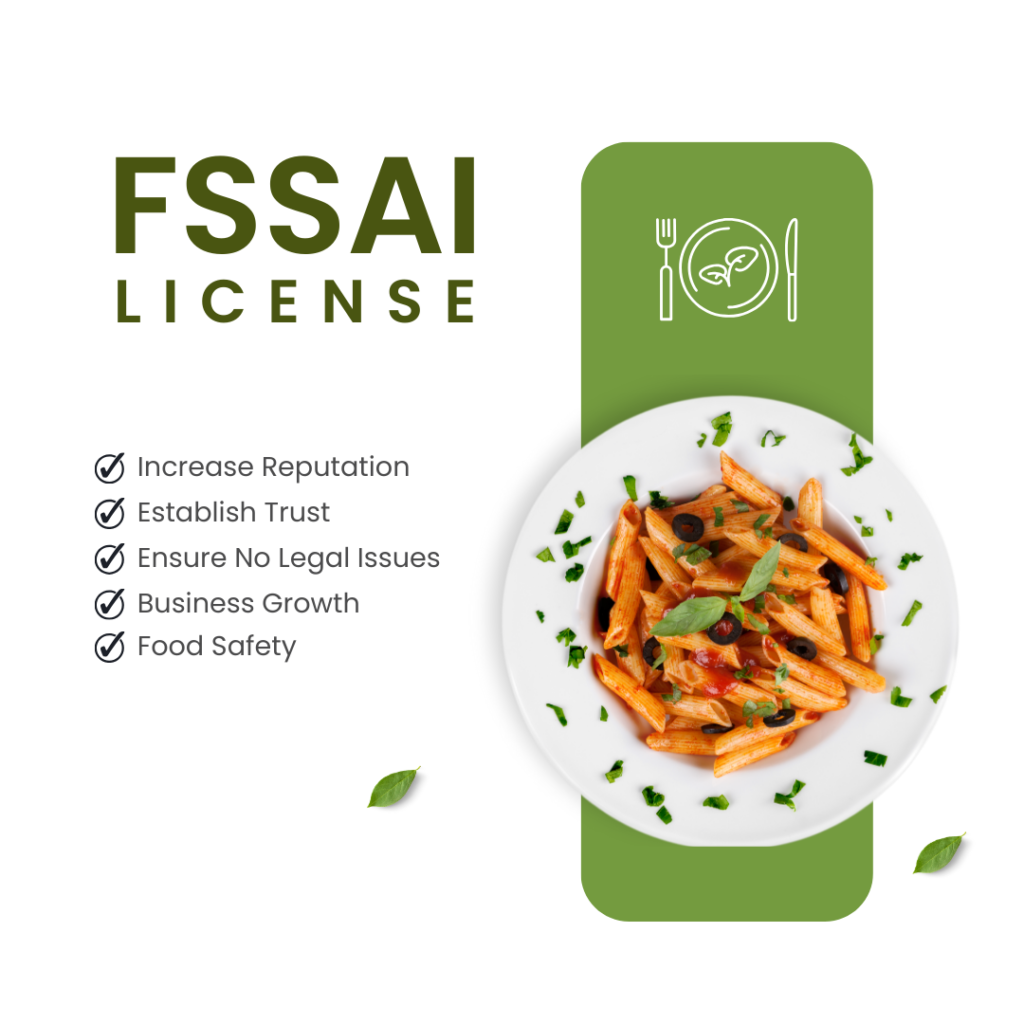Fssai-Food-License
- Home
- Fssai-Food-License
What is an FSSAI Food License and why is it necessary?
The Food Safety and Standards Authority of India (FSSAI) Food License is a mandatory requirement for any food business operator in India. It’s a legal document issued by the FSSAI that certifies that the food business operates in compliance with the safety and quality standards prescribed by the authority.
Obtaining an FSSAI Food License is necessary for several reasons. Firstly, it ensures the safety and quality of food products consumed by the public. The license mandates adherence to hygiene and safety regulations, thereby reducing the risk of foodborne illnesses. Secondly, it enhances consumer trust and confidence in the brand, as it signifies that the food business meets established standards. Additionally, having an FSSAI Food License is often a prerequisite for getting access to various opportunities like retail shelf space, export opportunities, or government tenders, thereby opening up avenues for business growth. Overall, the FSSAI Food License is indispensable for ensuring food safety, consumer trust, and business viability in the food industry.

Benefits of obtaining an FSSAI Food License
Obtaining an FSSAI (Food Safety and Standards Authority of India) food license offers numerous benefits for both businesses and consumers alike. Firstly, it ensures compliance with food safety regulations, thereby guaranteeing the quality and safety of food products. This enhances consumer trust and confidence in the brand, leading to increased sales and brand reputation.
Secondly, acquiring an FSSAI license opens doors to new markets by enabling businesses to expand their operations beyond local boundaries. Many retailers and distributors require suppliers to have this certification, making it essential for accessing wider distribution networks.
Furthermore, the FSSAI license signifies a commitment to food safety practices, which can lead to cost savings in the long run by reducing the risk of foodborne illnesses, product recalls, and legal liabilities.
Overall, obtaining an FSSAI food license not only ensures regulatory compliance but also boosts market competitiveness, enhances consumer trust, and promotes long-term business sustainability.
Who needs an FSSAI Food License
The Food Safety and Standards Authority of India (FSSAI) regulates food businesses to ensure the safety and quality of food products. Obtaining an FSSAI food license is mandatory for various categories of businesses involved in food production, processing, distribution, and sale.
Firstly, food manufacturers, including small-scale and large-scale producers, need an FSSAI license to operate legally. This includes businesses involved in processing, packaging, and labeling food products.
Secondly, food distributors and wholesalers who engage in the storage and transportation of food items require an FSSAI license to maintain compliance with food safety regulations.
Thirdly, restaurants, cafes, eateries, and food service providers must obtain an FSSAI license to demonstrate their commitment to food safety standards and ensure hygienic food preparation practices.
Finally, food importers and exporters dealing with food items require an FSSAI license to facilitate international trade while adhering to food safety regulations both domestically and abroad.
In essence, any business involved in the food industry, from manufacturing to distribution, must obtain the necessary FSSAI license to operate legally and ensure consumer safety.
Penalties for operating without a valid license
Operating without a valid food license can have serious repercussions, both legally and financially. Penalties for such actions vary depending on jurisdiction but commonly include hefty fines, closure of the establishment, and even criminal charges in severe cases. These penalties serve to uphold food safety standards, protecting consumers from potential health hazards associated with unregulated food handling practices.
Financial penalties can range from moderate fines to significant sums, often escalating for repeat offenders. Additionally, closure of the business may occur until the necessary permits are obtained, resulting in lost revenue and damage to the establishment’s reputation. In extreme cases, operators may face criminal charges, leading to legal proceedings and potential imprisonment.
Beyond the immediate consequences, operating without a valid food license undermines public trust and poses health risks to consumers. Compliance with food safety regulations is essential for maintaining the integrity of the food industry and safeguarding public health. Therefore, stringent penalties serve as a deterrent, emphasizing the importance of obtaining and maintaining proper licensing for food-related operations.
